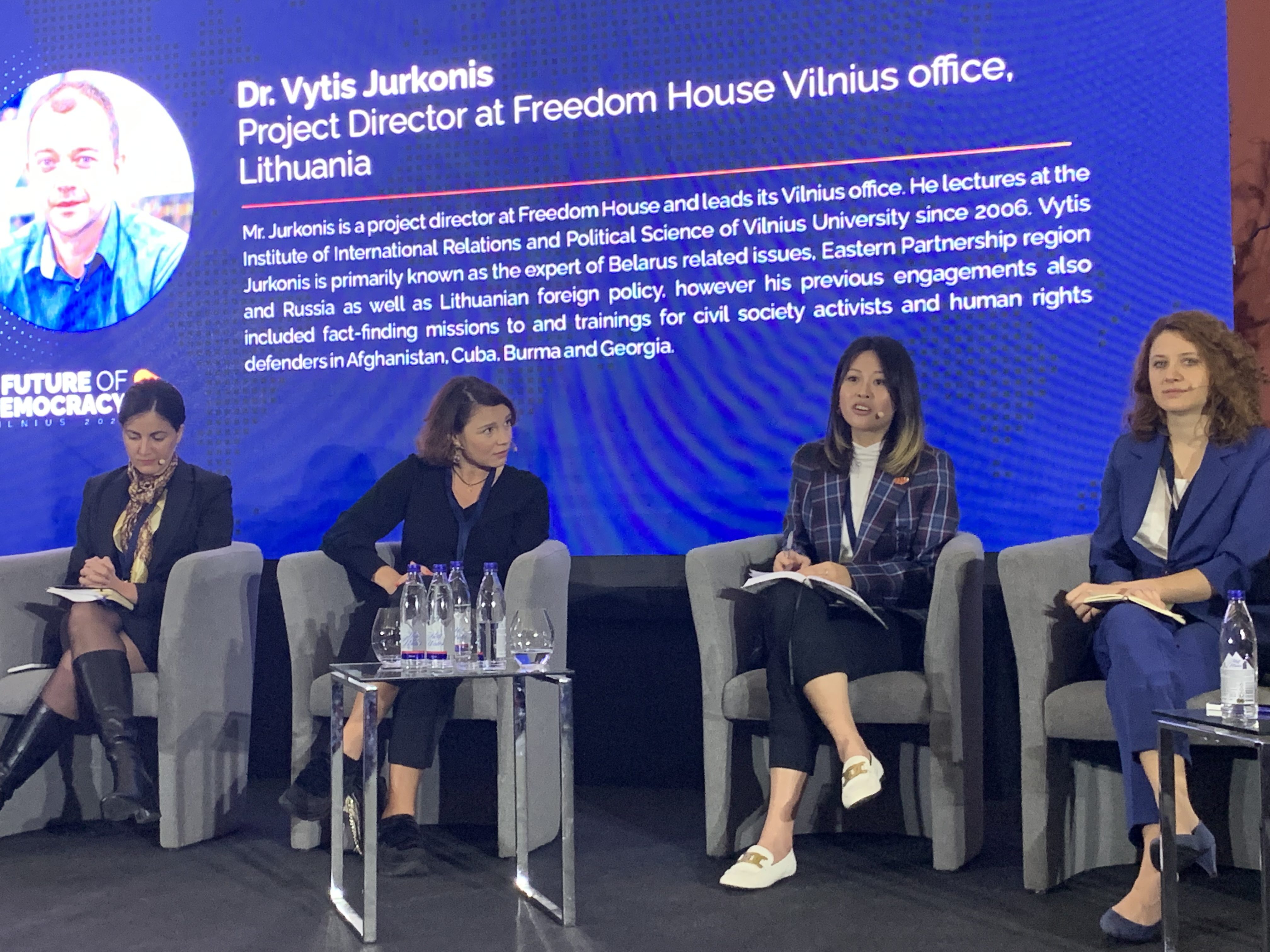

High-Level Forum on the Future of Democracy
During the High-Level Forum on the Future of Democracy, SG Thomas E. Garrett delivered remarks at a panel discussion on “Democratic Activists under Authoritarian Regimes – What can the Free World do to Help?”
Please see full remarks below.
High-Level Forum on the Future of Democracy
“Democratic Activists under Authoritarian Regimes – What can the Free World do to Help?”
Intervention by Thomas E. Garrett, Secretary General of the Community of Democracies
November 10, 2022 Vilnius Lithuania
Dear Excellencies, Distinguished Guests and Esteemed Panel,
It is an honor to be here on behalf of the Community of Democracies – an intergovernmental coalition of States, several here today in important roles, of shared democratic values and standards outlined in our founding document, the Warsaw Declaration.
The Warsaw Declaration consists of 19 principles of human rights, democracy and the rule of law which place emphasis on the inalienable rights of the individual.
Warsaw Declaration principles include:
- equal protection for all of the law
- freedom of opinion and of expression; freedom of thought, conscience, and religion, and
- freedom of peaceful assembly and association, among others.
In 2000, 106 nations adopted the Warsaw Declaration and in the 22 years since we’ve seen many adhere and aspire to the Declaration, while others significantly deviated.
By way of example, Ukraine and the Russian Federation each adopted the Warsaw Declaration in June 2000 and today present glaring contrasts in adherence to the rule of law and democracy. As President Landsbergis reminded us this morning, Ukraine chose democracy.
The post-Yeltsinist Russia abandoned the political promise of the Warsaw Declaration long ago.
Clearly, the Warsaw Declaration in 2000 came about in a different environment than today.
Today is a different moment, with democracy facing new threats and challenges. Last night we looked at external challenges for democracy. As our panel points out this morning, internal challenges and backsliding within a country, as seen in their stories of prosecution and repression of civil society, is a very real problem.
How can we defend democracy’s activists?
The panel told us we must be clear-eyed what’s needed as to the challenge:
Carmen Lau (Hong Kong) urges us to be more assertive.
Hannah Liubakova (Belarus) asks that we take all opportunity, every international gathering or for a, to advocate for human rights defenders
Zhanna Nemtsova (Russia), and earlier today Rob Berchinski, reminded us that reporters must be enabled – a free system exists only where a free media operates
And Rosa Maria (Cuba) reminds us of the need to keep every activist in authoritarian system visible.
At the Community of Democracies, we know that there exist various forms of democracy to and that democracy does not belong to any one country alone.
But there are certain unchangeable and constant conditions that a political system must fulfill to be democratic that goes beyond free and fair elections such as
- the respect for human rights, the separation of powers,
- the rule of law
- and an inclusive and open environment for civil society to operate.
These standards must be present as essential features of every democratic system. On this, we should be able to agree, and we must also agree to act.



